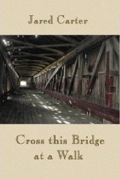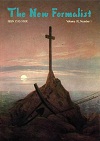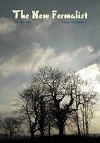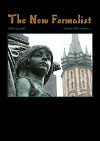Homer
Agamemnon, forced to give back Chryseis,
Demands of Achilles, Briseis.
So Achilles, unlaid,
Will not join the parade,
And the Trojans think “No one can slay us!”
Then Patroclus, Achilles’ best buddy,
Takes his armor, but winds up all bloody.
For despite his great will he’s
Not as strong as Achilles—
It’s hard to be a god’s understudy.
So Achilles jumps back in the fray,
Killing Trojans all night and all day.
He turns their boy Hector
Into just one more specter,
And his father, old Priam, goes gray.
Cassandra said “Don’t trust that horse!”
The Trojans ignored her, of course.
But quite soon they learned,
As Ilium burned,
That she could have been quite a resource.
Laocoön agreed it was fake:
To accept it would be a mistake.
They laughed at him too,
And now there’s a statue
Showing how he was killed by a snake.
Odysseus tried to get home.
For a decade he battled the foam.
Telémakhos strove,
While Penelope wove,
To keep suitors from her chromosome.
Nausicaa, Circe, Calypso:
They all had such sweet, pretty lips. “Oh!”
They cried “Brave Odysseus!
Won’t you strip down and kiss us?”
He said “Ladies, I go where my ships go.”
When Odysseus finally returned,
And learned that Penelope’d spurned
The suitors’ lewd beds,
He cut off their heads,
A reward their bad manners had earned.
Plato
Plato wanted to kick out the poet;
Called us liars and said we have no wit;
Said it’s only philosophy
That can free us from sophistry—
But then why write a novel to show it?
Aristotle
Aristotle then taught us to state
Propositions with taxonomical weight,
And when he taught school
He enforced each tough rule,
Sometimes spanking Alexander the Great.
Genesis
In the Bible, in the very beginning,
Eve and Adam have no sense of sinning.
Then they eat the wrong fruit
And are given the boot
Out of Eden, where the snake slithers, grinning.
There were giants in the earth in those days,
But there was also a giant malaise.
This roiled God’s blood,
So he sent a flood,
Though the next time He’ll set things ablaze.
God saved Noah, who fathered a rabble
That soon built the Tower of Babel.
They all spoke one language,
Which gave God great anguish,
So he broke it and made them play Scrabble.
God looked down on the city of Ur,
And saw that its ways were impure.
So he told Abraham
To smash idols and scram,
And henceforth to address Him as “Sir.”
Later on, God said “Abe, kill your son.”
Abe said “Where you want this killing done?”
God said “Get your tefillin,
And stop quoting Bob Dylan.”
Abe said “Yes, sir,” and left on the run.
The Psalms
The Lord is my shepherd, I guess,
But I still seem to want — what a mess!
His rod and his staff
May fill your carafe,
But my cup seems to be holding less.
Augustine
I envy good St. Augustine.
His adolescence was truly obscene.
Later on he apologized,
And so he was canonized!
Not bad for a great libertine.



